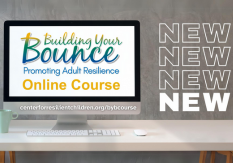|
|
|||||||||||||
Looking beyond gifts: Helping your child manage expectations during the holidaysBy Susan Damico – Assistant Director of the Devereux Center for Resilient Children For many, the holidays are the most wonderful time of the year, but all the excitement, stimulation and expectation can take a toll on children and their parents. Taking a few moments each day to teach our children about generosity, gratitude and resilience may help prevent any disruption or letdown that can wreak havoc during what should be a fun and joyous time for families. A primary source of happiness and stress during the holidays is exchanging gifts with loved ones, especially children. All parents want to see their child’s face light up when opening presents but, often, it can feel like gifts become the star of the show, instead of playing a supporting role. One way to make sure presents don’t steal the spotlight is to help your child focus on generosity and gratitude. A few tips include:
Building resilience to reduce stressDuring the holiday season, it’s also important to be mindful of other stress factors that could affect your child. If you notice unusual or out-of-character behaviors, this could simply be the result of overstimulation from events, activities and school obligations. When planning parties, family gatherings and school recitals, schedule down time to be together and reflect. Use this time to help your child relax and decompress: practice self-calming techniques like listening to soothing music, reading a book or practicing deep breathing – and remember to laugh. Children who are relaxed and emotionally centered have more control over their behaviors. Taking time this hectic holiday season to help your children develop social and emotional skills will enable them to feel good about themselves, feel connected to others, believe their actions can make a positive difference and, ultimately, are more likely to be happy. Latest News
|
|||||||||||||
- Home
- About Us
- Advanced Philosophy of Care
- Mission, Values and Service
- Our Commitment to Safety
- Our History
- Senior Leadership Team
- Devereux Board of Trustees
- Annual Reports
- Devereux in the News
- Diversity, Equity, Inclusion and Belonging
- Recognizing Our Employees
- Celebrating Our Devereux Families
- Sharing Messages of Hope
- Who We Help
- Locations
- Supporting Devereux
- Training and Consulting
- Careers









